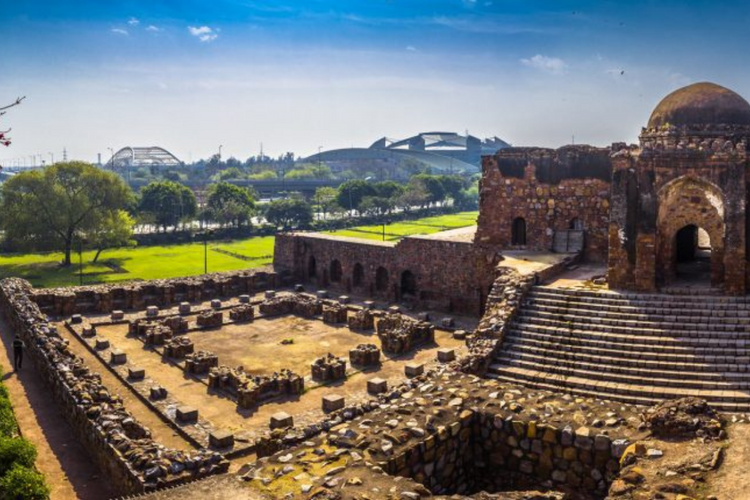For smooth Ad free experience
For smooth Ad free experience
The ruins of Feroz Shah Kotla witness a miracle every day. The erstwhile residence of Sultan Firoz Shah Tughlaq has turned into an unusual democratic religious space. Believers from every nook and corner of Delhi come here to appeal to the wish-granting djinns of Feroz Shah Kotla. Read on to discover more about the myth of djinns residing in the fifth city of Delhi.

Harappan Weights
The Islamic tradition tells us that Allah created Farishtey (angels) from light. Similarly, he made Djinns (spirits) from smokeless fire and Insaan (humans) from clay. While the angels are celestial creatures, djinns are a completely different story. They can be both good and evil. The most famous example of an evil djinn in the Islamic texts is Iblis, popularly known as the devil or shaitaan. Don't worry! Today we will discuss the good djinns only.
One such place that inhabits djinns is the ruins of Feroz Shah Kotla. Apparently, praying to them solves all problems and promises a better life. But how and when did the Djinns decide to settle here?
After the devastating experience of the Emergency of 1975, a saint called Laddu Shah settled in the fort. The word got out that Laddu Shah had felt the presence and energy of djinns on the ruins of the fort. He, therefore, preached to his followers to spread and encourage devotees to visit Feroz Shah Kotla.
And that's how the tradition of praying to the djinns on Feroz Shah Kotla was initiated. Thursday is the most auspicious day because legend says that djinns feel happy and are extra benevolent every Thursday. This belief alone has the power to attract devotees to piously flock to the fort every week.
You will be further surprised to know that djinns are highly organised spirits. Myths circulating Feroz Shah Kotla say that the djinns are an organised body of ministers. The Ministry of Djinns has different departments that operate according to the wishes of the believers.
Like the modern-day bureaucracy, the devotees write letters or Shikwa/Arziya to ensure it reaches the correct department for fulfilment. That's why one carries multiple copies of their letters in case it is misplaced by a department. The devotees then have to visit Feroz Shah Kotla for seven consecutive Jumma nights (Thursday nights).
A letter written by a devotee in one of the chamber’s of the fort; Image Source- The Quint
Like every parliament session, the djinns also hold their durbar at midnight to discuss urgent matters. They also select the wishes that should be granted with Allah.
The story does not end here. The chief of djinns, known as the Laat Wale Baba, resides in the Minar-e-Zarreen. It is a 3.1 metres high polished sandstone pillar inside the compound of Feroz Shah Kotla. The believers tie their wishes on the railing around the minar and inch close to touch it while praying
The 14th-century structure of Feroz Shah Kotla is hardly recognised for its history. It is now recognised as the hub of spiritual worship where djinns work their magic behind the scenes. People from all walks of life, despite their class, gender or religion, show up here in search of happiness.
The earliest sociological understanding of the myth takes us back to the Emergency. Most of the devotees who pile up at the fort came from the areas worst hit by the atrocities of the1975 Emergency. The horrors of forced eviction, sterilisation and demolitions left no hopes for a future. In such circumstances, the occurrence of Laddu Shah and the myth of djinns helped people survive and move on.
Whether djinns linger in Feroz Shah Kotla or not is a phenomenon difficult to confirm. But what one can be sure about is the source of perpetual hope it supplies to its followers. It is the promise of healing that keeps the myth of djinns alive.
0
You might be interested in reading more from
